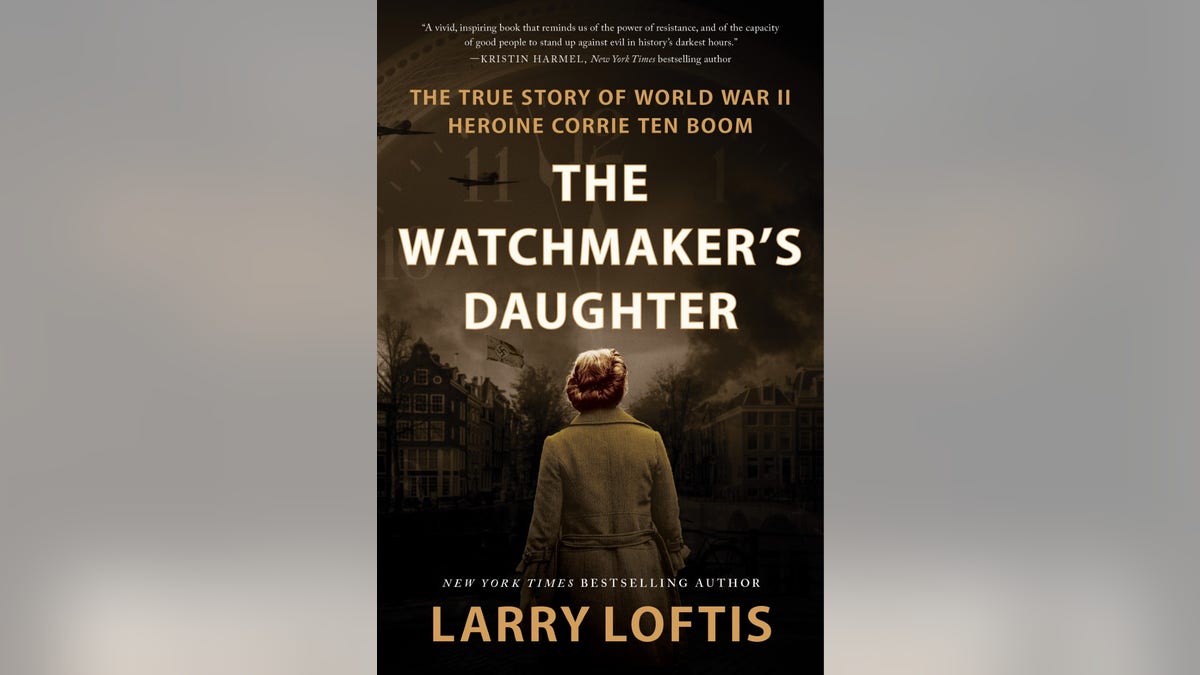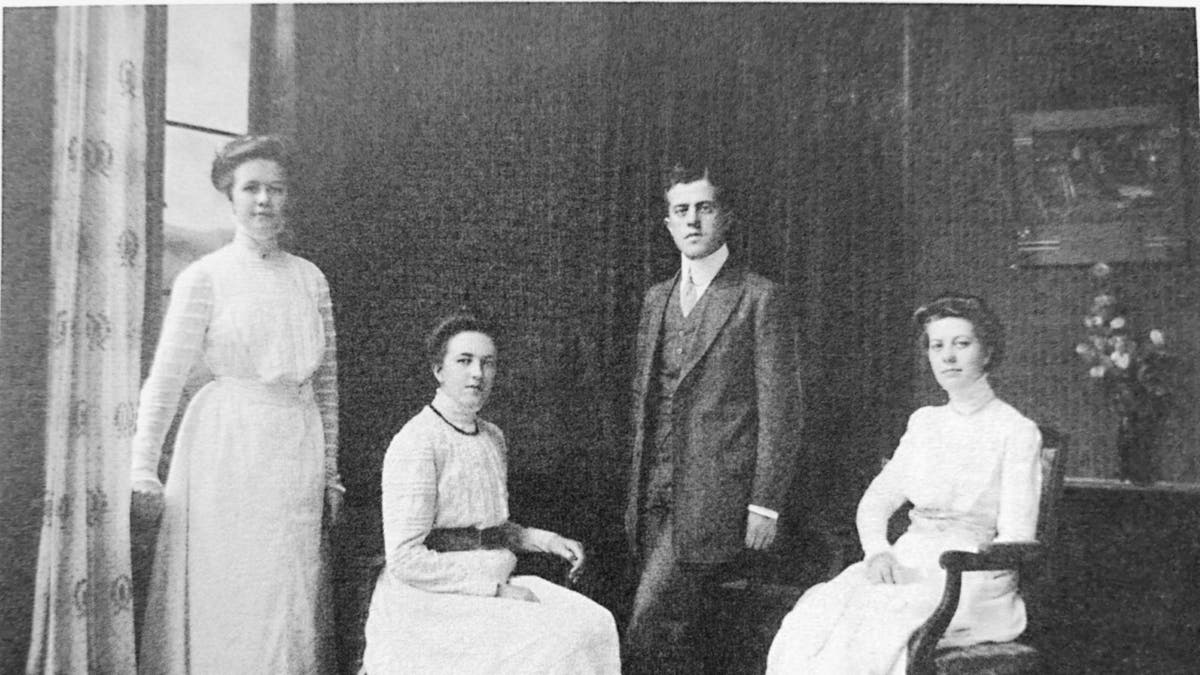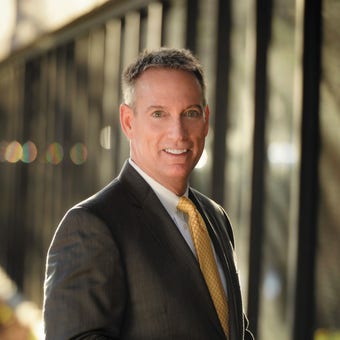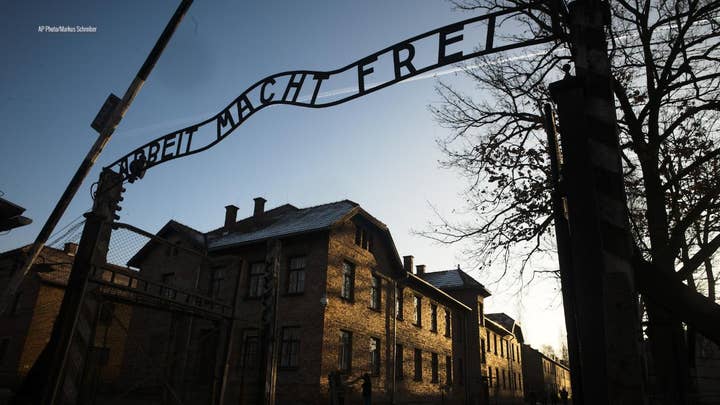Holocaust survivor reunited with family that saved his life
David Rossler of Walloon Brabant, Belgium, is reunited with the family that saved his life during WWII.
Editor’s note: During World War II in Haarlem, Holland, Corrie ten Boom and her family (father Casper, sisters Betsie and Nollie, brother Willem) actively hid Jews and Dutch boys whom SS soldiers were snatching off the street to be sent to work in German factories. They also became involved with the Dutch Resistance and were eventually caught and sent to concentration camps. The following is an excerpt from "THE WATCHMAKER'S DAUGHTER: The True Story of World War II Heroine Corrie ten Boom."
After the war Corrie received invitations to speak all over the United States. For several months she gave her testimony at churches, prisons, universities, schools, and clubs. As 1945 drew to a close, though, she felt called to return to Europe. Again and again, her mind returned to what Betsie had said at Ravensbrück⸻that they would have to minister in Germany itself.
"Corrie, there is so much bitterness," Betsie had said. "This concentration camp here at Ravensbrück has been used to destroy many, many lives. There are many other such camps throughout Germany. After the war they will not have use for them anymore. I have prayed that the Lord will give us one in Germany. We will use it to build up lives."
Corrie had found the idea repulsive at the time. Never again did she want to step foot in Germany. But Betsie’s words echoed in her mind: "The Germans are the most wounded of all the people in the world."
HOW THIS HOLOCAUST HEROINE SAVED 100 JEWISH BABIES DESTINED FOR DEATH
Corrie considered the state of Germany: the land lay in ruins and rubble, countless husbands, fathers, and brothers were gone, and some nine million people were homeless.
She would go.
Speaking opportunities came easily in Germany, and one day she received an invitation to speak to a hundred families living in an abandoned factory. Sheets and blankets had been hung to create makeshift rooms, but the cry of a baby or outburst of a resident resounded throughout the building. All around Corrie could see nothing but misery and desperation. How could she minister to these people? She had her own life now, traveling and speaking, but the needs here burdened her.
If she wanted to have a meaningful impact, she realized, there was only one way.
She would have to live with them.

And so Corrie moved into the factory, sharing the Germans’ plight and bearing their burdens. For months she loved, comforted, and cared for them, asking nothing in return.
One day a director of a relief organization visited Corrie at the factory. He had heard about her work, he said, and perhaps there was yet another avenue for her special ministry. "We’ve located a place for the work. It was a former concentration camp that’s just been released by the government."
Corrie was floored. Another piece of Betsie’s vision come true. She went with the man to Darmstadt, a dilapidated former concentration camp, and walked between the barbed wire to the gray buildings. It was too familiar.
Inside a barrack, Corrie decided it would all have to be transformed.
HOLOCAUST SURVIVOR SHLOMO PEREL, THE INSPIRATION FOR AN INTERNATIONALLY RENOWNED FILM, DIES AT 98
"Window boxes. We’ll have them at every window. ... Green paint. Bright yellow-green, the color of things coming up new in the spring."
And so in 1946, one year removed from her own incarceration in a camp like this, Corrie opened the Darmstadt facility to mirror what the Bloemendaal home had become in Holland. With the extra space, though, Darmstadt could house one hundred sixty residents. Soon the facility reached capacity and had a waiting list. The German Lutheran Church agreed to help with administration, and another group, the Lutheran Sisterhood of Mary, assisted with women and children residents. Corrie continued to speak to raise money for Darmstadt, and soon pastors and members of various churches began building homes around it. Corrie now had three havens of healing.

The ten Boom Children before the war…Corrie is seated on the left.
In early 1947 Corrie spoke at a church in Munich, the town where Adolf Hitler had begun his political career with the ill-fated "Beer Hall Putsch." When she finished, a man worked his way through the crowd to speak with her. Balding and heavyset, he wore an overcoat and carried a brown felt hat. As he stepped closer, though, Corrie instead saw a blue uniform, cap with skull and crossbones, and a swinging leather crop.
Her stomach churned. It was him all right⸻the first SS guard she had seen in the Ravensbrück shower room. The undressing and nakedness, the pile of clothes, the leering and mocking men, Betsie’s ashen face. Of all the sadistic camp guards, he was one of the most cruel.
"How grateful I am for your message, Fraulein," the man said. "To think that, as you say, He has washed my sins away!"
He held out his hand but Corrie didn’t reciprocate. How could she touch this vermin?
"You mentioned Ravensbrück in your talk," he continued. "I was a guard there. But since that time I have become a Christian. I know that God has forgiven me for the cruel things I did there, but I would like to hear it from your lips as well."
He extended his hand again. "Fraulein, will you forgive me?"
Corrie wrestled with her bitterness. This man represented the worst of the place that had taken Betsie’s life. Forgiveness seemed impossible.
WEST VIRGINIA BILL WOULD REQUIRE HOLOCAUST EDUCATION IN PUBLIC SCHOOLS
At the same time, though, she remembered Jesus’s admonition: "If you do not forgive men their trespasses, neither will your Father in heaven forgive your trespasses." She had preached the importance of forgiveness the last twelve months, and she had seen first-hand at Bloemendaal and Darmstadt the practical impact: those who were able to forgive their former enemies resumed their lives, while those who could not remained emotional invalids.
Corrie tried to smile, but she felt not the slightest spark of warmth or charity. Quickly, she said a silent prayer: "Jesus, help me! I can lift my hand. I can do that much. You supply the feeling."
Mechanically, she lifted her arm. As she gripped the man’s hand, something remarkable happened: a current of energy passed between them, and a healing warmth flooded her body. More than forgiveness, Corrie suddenly felt a genuine love for this man.
Her eyes filled with tears. "I forgive you, brother! With all my heart."
For several moments she held his hand. "I had never known God’s love so intensely as I did then," she later remembered.
This lesson she would not soon forget: one often cannot forgive without the power and grace of God.


